Internet of Facades (IoF) leads in era of smart and sustainable living: Living Tomorrow as a showcase for IoF
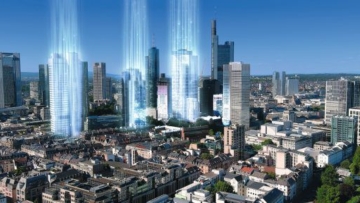
As the world moves quickly towards a more connected and intelligent future, the buildings we live and work in evolve fundamentally. One of the more profound evolutions in the architectural landscape is the transmutation of traditional facades to dynamic, responsive entities, through the concept of Internet of Facades (IoF). This integrative approach hints at a revolution in building management and maintenance, leading in an era of sustainable and smart living.
At the forefront of this innovation is Schüco, a pioneer in aluminum systems and co-initiator of Living Tomorrow – a platform for co-creation and innovation, where visitors can experience future living trends. This project represents a milestone in architectural technology, illustrating how embedding tiny sensors in facade elements does not only bestow intelligence upon the building's skin but also aligns it with the core ethos of the Internet of Things.
Living Tomorrow's showcase in Vilvoorde, Belgium, is a tangible touchstone of tomorrow's trends. With Schüco's expertise, this futuristic building incorporates cutting-edge systems, including advanced window, door, and sliding systems, collectively knitting a tapestry of sustainable, responsive architecture. One of its most striking implementations is the IoF, which serves as a smart nervous system for the building, endowing it with a digital identity, programmable and receptive to a multitude of inputs and capable of externalizing its condition for proactive care.
Geert Michels, General Manager at Schüco BeLux, elaborates – “The innovation of a digital twin, based on these sensors, is designed to link directly with the building management system. This digital twin, accessible from smartphones via an app, provides info such as a digital manual and maintenance instructions”.
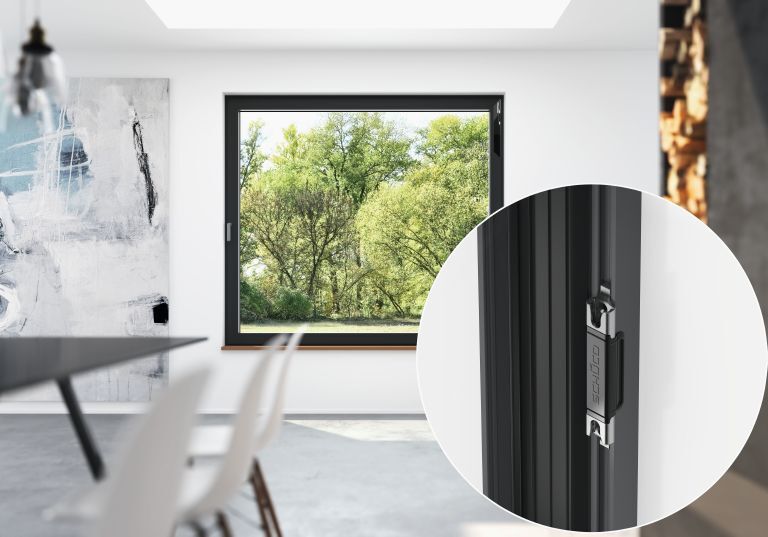
As Michels mentions, the passive IoF.ID sensor extends its capability with an active counterpart, the IoF.Pulse, lending a hand towards predictive maintenance personalized to user interaction.
On the other side of the technological spectrum, Schüco is taking a stance on environmental priorities. Through the unique digital identity tagged to each component outfitted with a life-cycle counter, it's not just about creating a smart facade but also a sustainable one. By monitoring the circular value and minimizing CO2 emissions, Schüco is not just predicting a need but preparing for it, thereby fostering a transition to a circular economy.
The brilliance of this innovative tech lies in the data—the collection and preservation of relevant information that keeps building components in their prime. It's a cycle conducive to both longevity and eco-consciousness. By embracing such a tech-forward approach, Schüco is not just redefining the present; it is molding a new future for the building industry, underlining the intersection of technology, sustainability, and user-centricity.
Wrapping up, IoF's blueprint is as a masterstroke in unlocking the full potential of facades, transforming them into synergistic elements of urban ecosystems. With an eye firmly on the future and one hand on the pulse of innovation, the concept of Internet of Facades breaks through as an example of how connectedness can create a smarter, more sustainable living environment for all.

Latest insights & stories
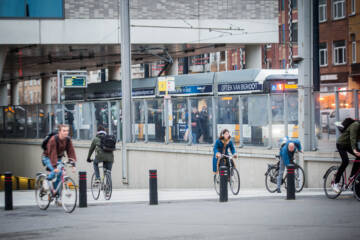
ROAD SAFETY
Since 2018, the number of traffic casualties in Flanders has risen again. Currently, the figures are stagnating, but the risk of accidents with injuries remains high for vulnerable road users in Flanders. And that while traffic should be safe for all users and modes. We want to change this by focusing on transparent policy, training on safe behavior, infrastructure improvements, legislation and enforcement.
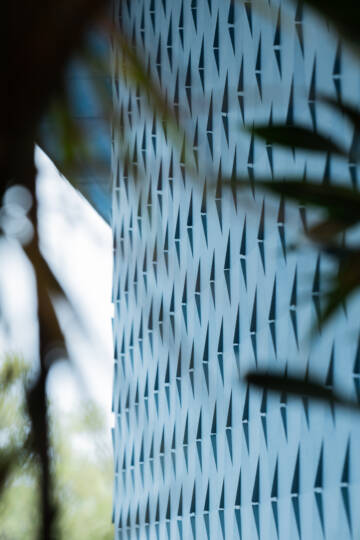
What is needed for a more circular construction sector? Insights from Sien Cornillie, Circularity expert at NAV
NAV, or "Netwerk Architecten Vlaanderen," is a professional organisation for architects in Flanders. It offers various services including professional development and advocacy for the architectural sector. NAV also fosters networking opportunities and provides advice on legal, technical, and management aspects. The network is currently working on a position paper on circularity. We sat down with Sien Cornillie, an expert on circularity and energy at NAV. This interview reflects her own opinion.
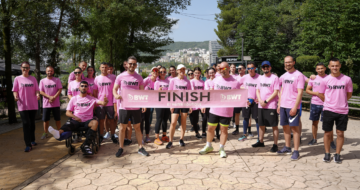
A Global Movement: The World Unites in a Pink Pledge for Clean and Sustainable Water
5,000 participants. 32 countries. €30,000 funds raised. And that's just the beginning.
Picture this: One step that sends ripples across the globe, transforming lives and creating waves of change. You might wonder, how can such a simple action for most of us have such a profound impact?